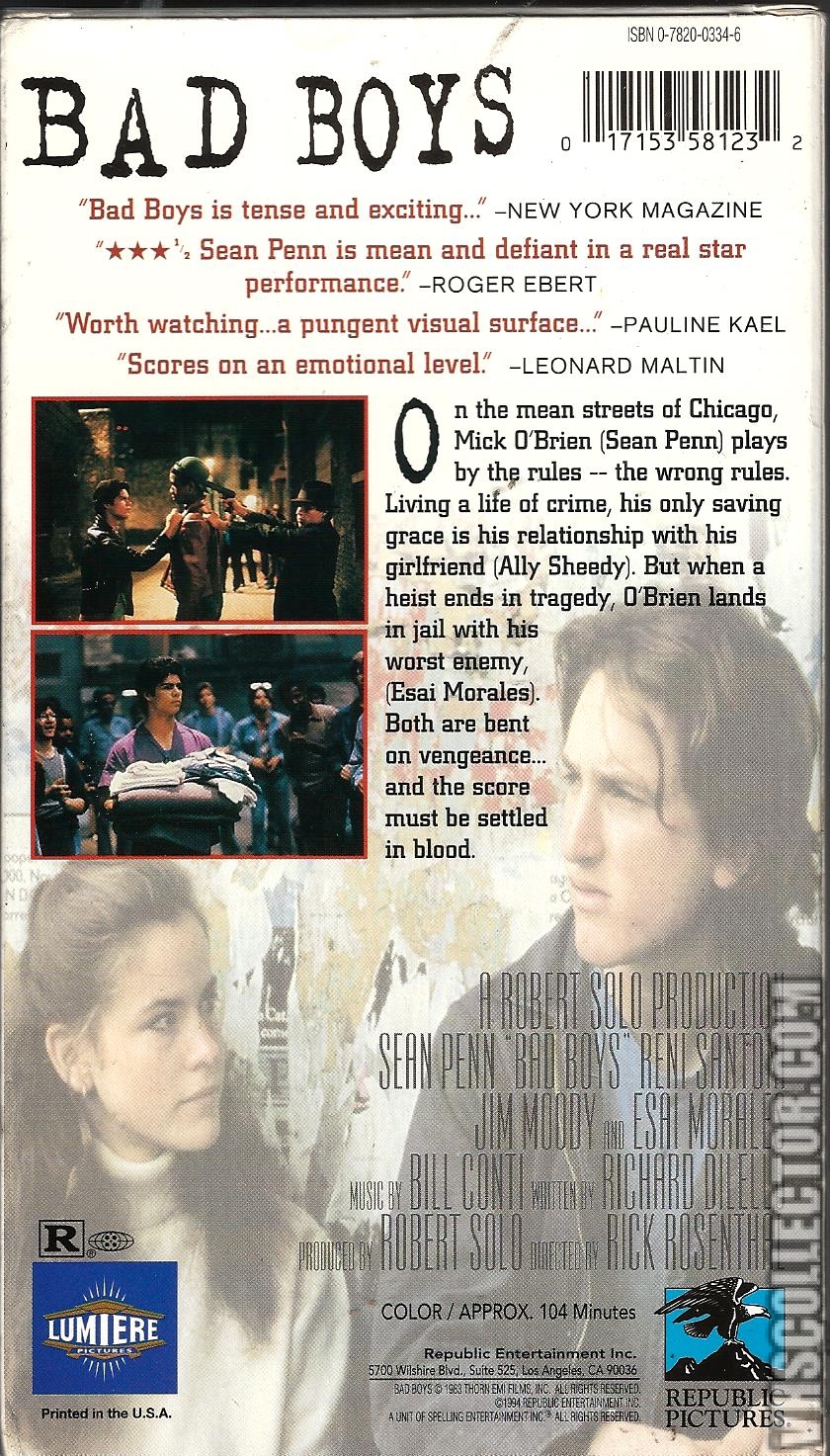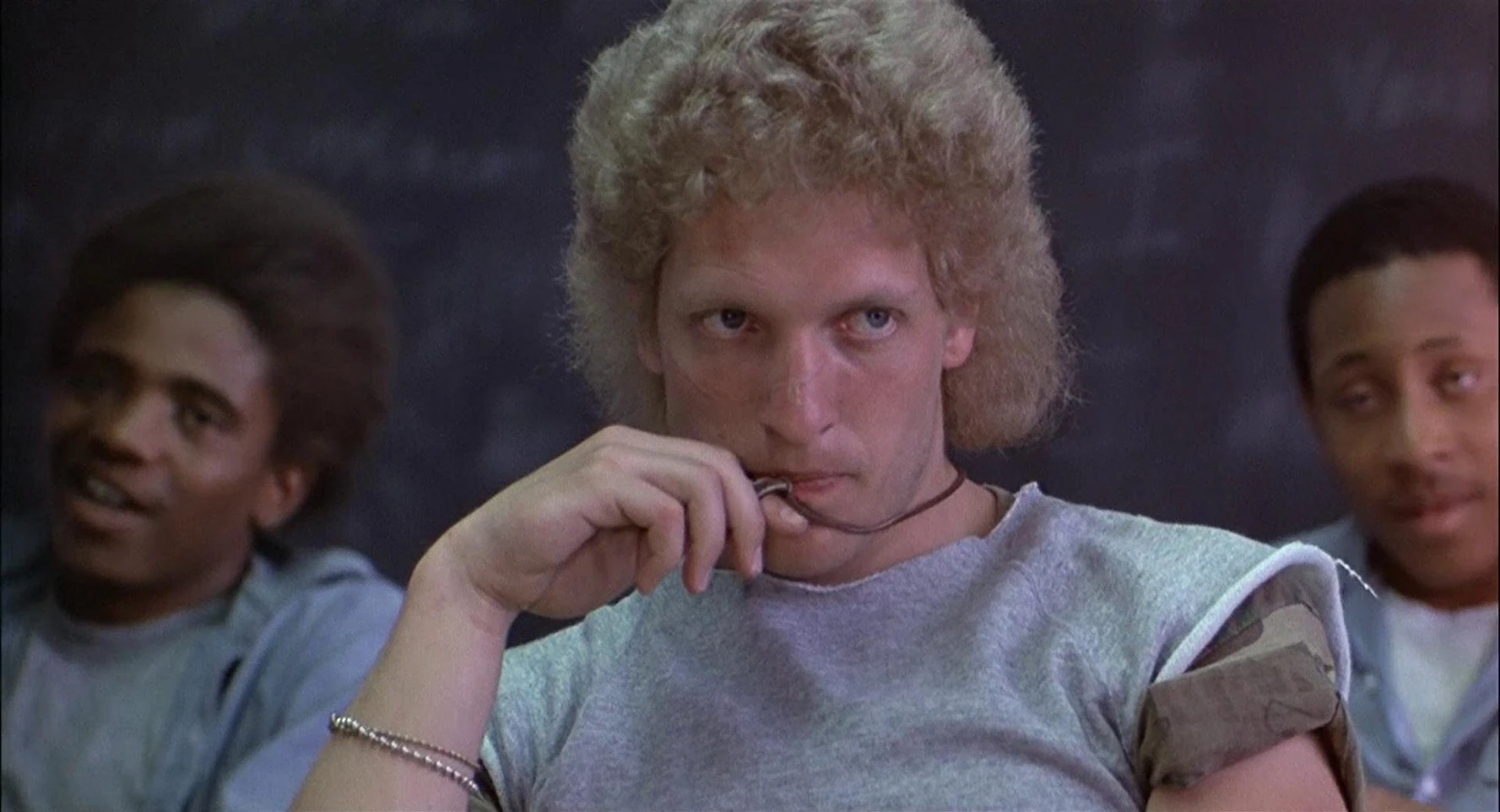Bad Boys 1983: The Untold Story Of Basketball's Most Infamous Team
The 1983 Philadelphia 76ers are often remembered as one of the most dominant teams in NBA history, but behind the glitz and glamour of championships lies a lesser-known story of a team known as the "Bad Boys." While the term "Bad Boys" is more commonly associated with the Detroit Pistons of the late 1980s, the 1983 Sixers had their own rebellious streak that contributed to their legacy. This article dives deep into the untold story of this iconic team, exploring their journey, controversies, and lasting impact on basketball culture.
The 1983 season was a defining moment for the Philadelphia 76ers, a year where they cemented their place in basketball history. However, the story of the "Bad Boys" adds another layer to this narrative, one that highlights the complexities and personalities that made this team not just winners but also rule-breakers in their own right.
Join us as we explore the rise of the 1983 Philadelphia 76ers, their rebellious spirit, and the lasting legacy they left behind. This article will uncover the untold stories, key players, and the cultural impact of a team that defied conventions and redefined what it meant to be champions.
Read also:Aot Live Action The Ultimate Guide To Humanitys Last Stand
Table of Contents
- The History of Bad Boys in Basketball
- Biography of Key Players
- Team Structure and Dynamics
- Controversies and Legacy
- Coaching Philosophy and Impact
- Key Statistics and Achievements
- Cultural Impact of the Bad Boys
- Comparison with Other "Bad Boy" Teams
- Media Coverage and Public Perception
- Looking to the Future
The History of Bad Boys in Basketball
The concept of "Bad Boys" in basketball has been a recurring theme throughout the sport's history. The term typically refers to teams or players known for their tough, aggressive, and sometimes controversial playing styles. The 1983 Philadelphia 76ers were no exception. While they were celebrated for their championship-winning season, their rebellious spirit and unorthodox approach to the game set them apart from other teams of their era.
In the early 1980s, basketball was undergoing significant changes. The introduction of the three-point line, the rise of superstar players, and the increasing popularity of the sport all contributed to a new era of basketball. The 1983 Sixers capitalized on these changes, blending traditional skills with a modern, edgy approach that resonated with fans.
Key moments in the history of the "Bad Boys" era include the team's dominance in the playoffs, their rivalry with other top teams, and the personal stories of the players involved. These elements combined to create a unique identity that continues to influence basketball culture today.
Origins of the Bad Boys
The origins of the "Bad Boys" can be traced back to the early days of the Philadelphia 76ers' rebuilding efforts. With the acquisition of key players like Julius Erving and Moses Malone, the team began to develop a reputation for toughness and resilience. This reputation was further solidified by their aggressive playing style and willingness to challenge opponents both on and off the court.
Biography of Key Players
At the heart of the 1983 Philadelphia 76ers were a group of players who defined the "Bad Boys" era. These individuals brought unique skills and personalities to the team, contributing to their success and notoriety.
Player Profiles
| Name | Position | Years with Team | Notable Achievements |
|---|---|---|---|
| Julius Erving | Forward | 1976-1987 | 11-Time All-Star, 1983 NBA Champion |
| Moses Malone | Center | 1982-1986 | 3-Time MVP, 1983 NBA Champion |
| Andrew Toney | Guard | 1980-1988 | 4-Time All-Star, Known for Scoring Ability |
Team Structure and Dynamics
The 1983 Philadelphia 76ers were built on a foundation of teamwork and mutual respect. Despite their reputation as "Bad Boys," the team maintained a strong sense of camaraderie and unity. This was evident in their on-court performance, where each player contributed to the team's success in their own way.
Read also:Dead Friends Forever Understanding The Concept And Its Impact
Key Roles and Responsibilities
- Julius Erving: Leadership and scoring
- Moses Malone: Dominance in the paint
- Andrew Toney: Scoring and defense
- Other Players: Supporting roles and specialized skills
Controversies and Legacy
While the 1983 Sixers were celebrated for their achievements, they were not without controversy. Their aggressive playing style and occasional clashes with opponents earned them a reputation as "Bad Boys." However, this reputation also contributed to their lasting legacy in basketball history.
Controversial moments from the 1983 season include high-profile confrontations with rival teams, debates over fair play, and discussions about the role of aggression in basketball. These moments helped shape the team's identity and solidify their place in basketball lore.
Impact on the NBA
The "Bad Boys" era had a profound impact on the NBA, influencing how teams approached the game and how fans perceived basketball culture. The 1983 Sixers set a precedent for future teams, demonstrating that success could be achieved through a combination of skill, strategy, and a willingness to challenge conventions.
Coaching Philosophy and Impact
Behind every great team is a great coach, and the 1983 Philadelphia 76ers were no exception. Coach Billy Cunningham played a crucial role in shaping the team's identity and guiding them to victory. His coaching philosophy emphasized discipline, teamwork, and a commitment to excellence.
Cunningham's impact on the team extended beyond the court, as he fostered an environment where players felt valued and respected. This approach helped unify the team and contributed to their success both on and off the court.
Key Statistics and Achievements
The 1983 Philadelphia 76ers were a statistical powerhouse, setting records and achieving milestones that continue to impress fans and analysts alike. Some key statistics from the season include:
- Regular Season Record: 65-17
- Playoff Record: 12-1
- Julius Erving: 21.4 points per game
- Moses Malone: 24.5 points per game, 15.3 rebounds per game
These statistics highlight the team's dominance and underscore their status as one of the greatest teams in NBA history.
Cultural Impact of the Bad Boys
The "Bad Boys" era had a lasting impact on basketball culture, influencing everything from player behavior to fan engagement. The 1983 Sixers exemplified the spirit of rebellion and innovation that continues to define basketball today.
Through their aggressive playing style and willingness to challenge conventions, the team inspired a new generation of players and fans. Their legacy is evident in the way modern teams approach the game, emphasizing toughness, resilience, and a commitment to excellence.
Comparison with Other "Bad Boy" Teams
While the 1983 Philadelphia 76ers are often associated with the "Bad Boys" label, they were not the only team to embrace this identity. The Detroit Pistons of the late 1980s are perhaps the most famous "Bad Boys" team, known for their physical play and aggressive style.
A comparison of these teams reveals similarities and differences in their approaches to the game. Both teams prioritized toughness and resilience, but the 1983 Sixers added a layer of skill and finesse that set them apart from their counterparts.
Media Coverage and Public Perception
The "Bad Boys" era received significant media coverage, both during the 1983 season and in the years that followed. Journalists and analysts were fascinated by the team's rebellious spirit and dominant performance, leading to extensive coverage in newspapers, magazines, and television broadcasts.
Public perception of the team was mixed, with some fans celebrating their success and others criticizing their aggressive playing style. However, the team's legacy as one of the greatest in NBA history is undeniable, and their impact on basketball culture continues to resonate today.
Looking to the Future
The legacy of the 1983 Philadelphia 76ers and the "Bad Boys" era continues to influence basketball culture. As the sport evolves, new teams and players will emerge, each bringing their own unique perspective to the game. However, the lessons of the 1983 Sixers—toughness, resilience, and a commitment to excellence—will remain relevant for generations to come.
We invite you to join the conversation about the "Bad Boys" era and its lasting impact on basketball. Share your thoughts in the comments below, and explore our other articles for more insights into the world of sports.
Call to Action
Thank you for reading this in-depth exploration of the 1983 Philadelphia 76ers and the "Bad Boys" era. We hope you found this article informative and engaging. To continue the discussion, please leave a comment, share this article with your friends, or explore our other content for more insights into the world of basketball and sports culture.
The Town Cast: A Comprehensive Look At The Stellar Ensemble Behind The Blockbuster Hit
Phil Davis Actor: Exploring The Career, Biography, And Legacy Of The Renowned British Actor
J Jonah Jameson: The Iconic Figure In Journalism And Beyond


